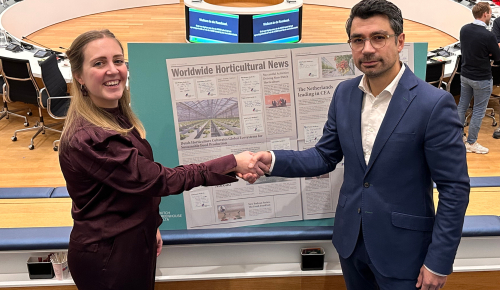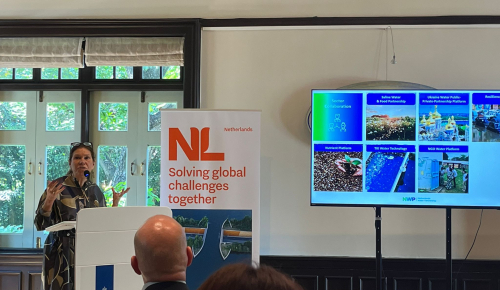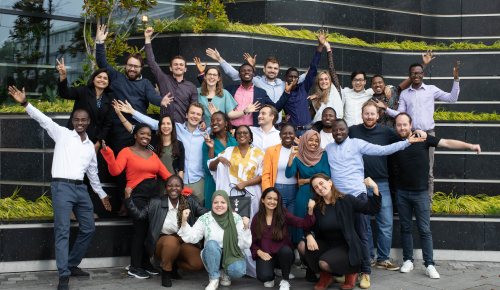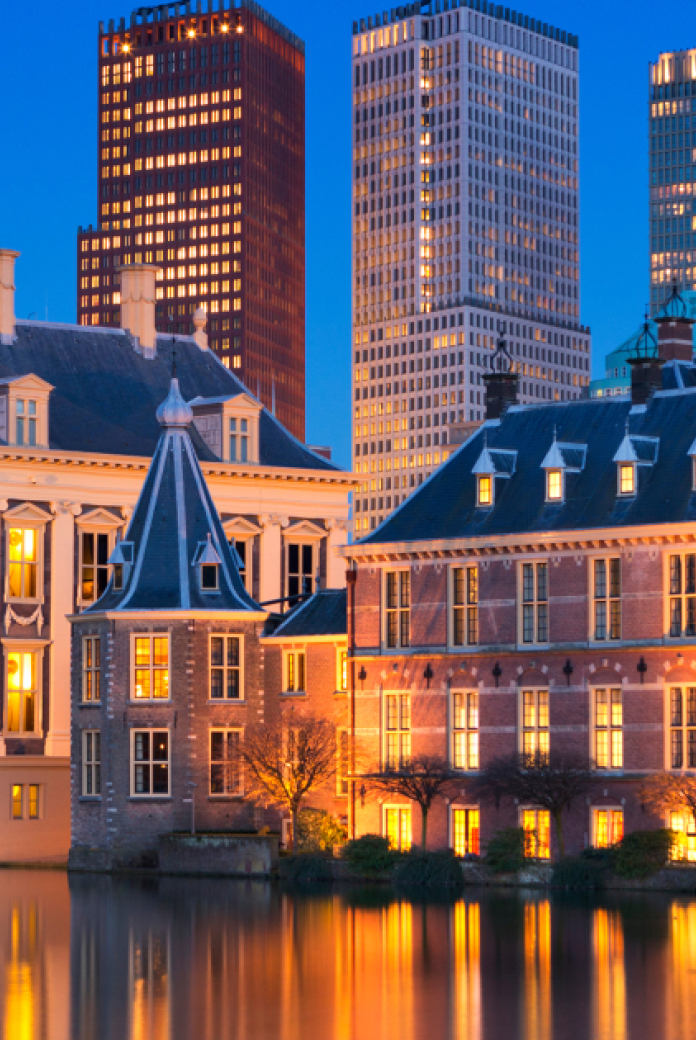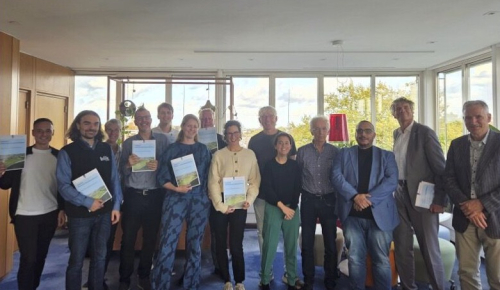Blog
16 July 2020The increasing importance of water systems in city planning and architecture
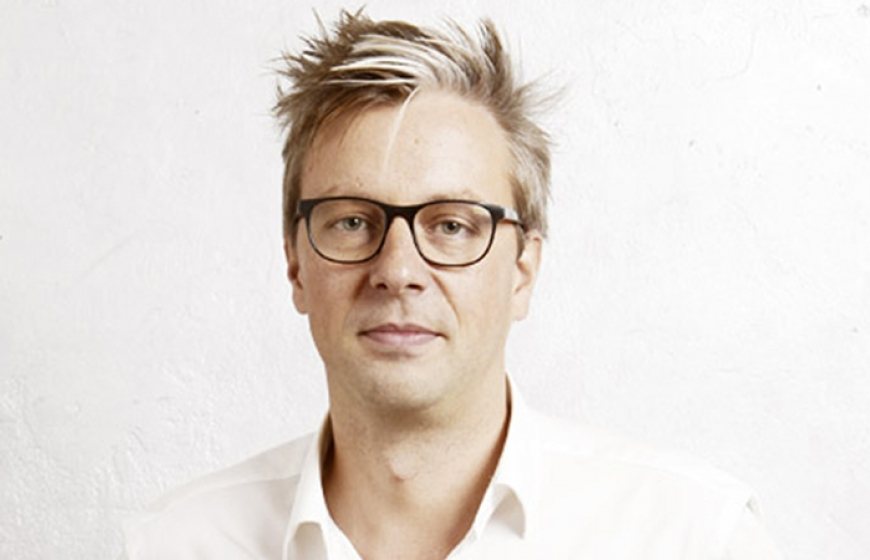
Founded in 2005 as an interdisciplinary partnership of architects, engineers and urban planners, CITYFÖRSTER now operates in ambitious projects around the world. What makes its approach so distinctive is its effort to always look at the wider context of its projects. It always looks at other improvements that can be brought about for the people living in the area where developments are planned. The result of this is that water related challenges often present themselves. Over the years, CITYFÖRSTER is finding itself increasingly involved in city planning projects where large-scale water systems and coastal protection play a pivotal role. Martin Sobota, co-founder and Director of the Netherlands CITYFÖRSTER office in Rotterdam, explains why his organisation joined the Netherlands Water Partnership (NWP).
‘CITYFÖRSTER was founded by a group of 11 people who had just finished their architecture and city planning studies in Hanover, Germany. It grew from our wanting to keep in touch with each other, but from the start things took off very rapidly. Already working from Rotterdam, I one day got in touch with the mayor of Tirana, the Albanian capital. Having received financing from the World Bank, he wanted a new plan that, in a non-technocratic way, would support the mission to turn Tirana into a modern European capital. Usually, the first assignment of new architects like ourselves would be to design a dormer window. We started with a masterplan for a 22 hectare area in Tirana!
Our plans were well received, and since then we have worked at this grand scale. Immediately after our project in Tirana, we were involved in developing a large-scale city planning project for the wider Helsinki city region. And when the 2008 crisis hit Europe, we still found our way to a range of ambitious, mostly donor funded, projects in Africa, Southeast Asia and the Middle East. Time has proven that we are adept at handling large-scale projects. We are not afraid of bureaucratic challenges, neither of projects where we do not know in advance where they will lead us.
Linking city planning, architecture and water systems
Building a new ring road, a harbour, designing new city squares usually take huge investments, and everybody is focused on that main infrastructure. Obviously, this is important. But we try to look one step further. What are the side-effects of what we are planning? Who and what are affected? Are we able to give more quality to the area and improve the circumstances for its inhabitants with relatively little means, simply by connecting stakeholders and by looking at the wider picture? Creating a positive impact is our mission.
Improving the public space
The topic of water is not always specifically addressed by our clients. Nevertheless, in practice it is becoming increasingly important, especially if you work on large areas. It is also becoming a greater necessity due to climate change. In the Netherlands, for instance, apart from designing improved water drainage, we are also starting to feel the need for more water retention in the face of increasing periods of drought. That is where city planning, architecture and water systems engineering come together. That is where we come in, and that is also where we try to link water systems engineering with designing a nicer, greener and healthier public environment. This can be in the form of city parks, coastal boulevards, green water retention fields, or water infiltration areas that have a double function as recreational zones.
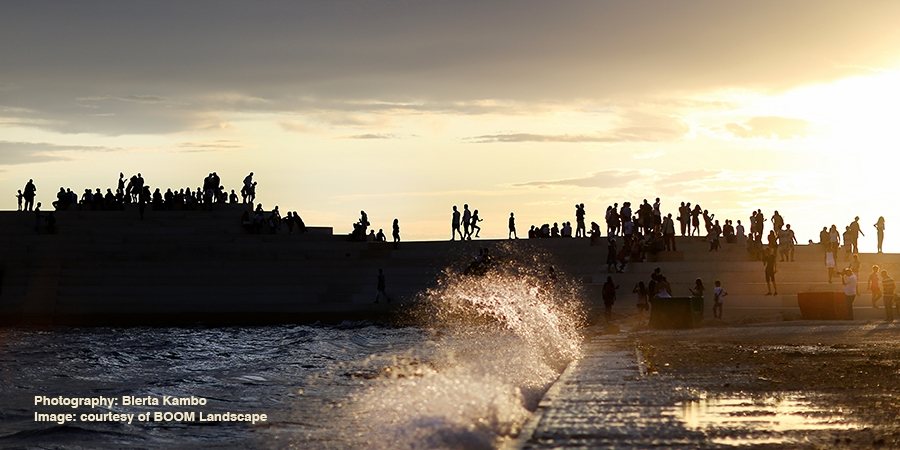
Sponge cities
At the moment we are very much involved in water related themes. We are working in a joint venture of German water engineers in various places in China on so-called sponge cities. The concept of sponge cities is cities where measures are taken to slow down the water drainage system, for example by designing green roofs, infiltration fields, water buffers and water retention areas. It is an exciting challenge for us to connect the design of this type of water system with ways of making the city more pleasant. In Hefei and Changsha, we are integrating the water system with public parks that look like green fingers on the city plan.
Connecting to NWP
Actually, it was these sponge city projects that brought us to the idea of connecting with NWP. The Netherlands has a lot of know-how and expertise in water engineering and if our water engineering projects continue to grow as they have done, we may well need to widen our scope. Through NWP we hope to increase our professional network and find new opportunities in different countries.
Creating better places
In return, I am convinced that we have a lot to offer other NWP members. As I already described, our specialty is to think in large systems and to add quality to hard and quantifiable necessities. Our clients are sometimes a bit overwhelmed by our holistic approach at first. But we have been able to prove that an intervention can achieve meaningful improvements at a wider scale than people imagined before we started. Good design, and I do not mean nice images and fancy materials, but a well thought through intervention that is integrated in its context, can really improve lives and people’s well-being. And that’s what really counts.
Being part of the solution
Sustainability has always been a leading principle for our organisation. It is even contained in our name. ‘Förster’ is the German word for forester. And foresters are the people who invented sustainability, literally. Luckily, we are all becoming more and more aware that sustainability is not just a fashionable concept anymore, but a bare necessity. If we look at the forest fires in Australia last year and now the floods in Japan, the third economy of the world – not to mention the pandemic – things are looking apocalyptic. Climate solutions, ecosystems regeneration and dealing with water is more important than ever. And I believe that that message is finally landing, among big project developers and their financers too. Our profession plays its part in causing these problems as well. Now it is time to be part of the solution!’

Joining the NWP network
By joining NWP, CITYFÖRSTER becomes part of a wider coalition of members consisting of Dutch business, governmental organisations, knowledge institutions and NGOs. NWP and its members work globally wherever Dutch water expertise can contribute to solving global water challenges which too often are related to, and are increasingly because of, climate change. NWP seeks to boost the international impact of the Dutch water sector through contributing to achieving the Sustainable Development Goals and creating the conditions conducive to knowledge exchange, matchmaking opportunities and assignments for its members.
Also interested in joining the NWP network? Register through our website!
Featured NWP members: CITYFÖRSTER
